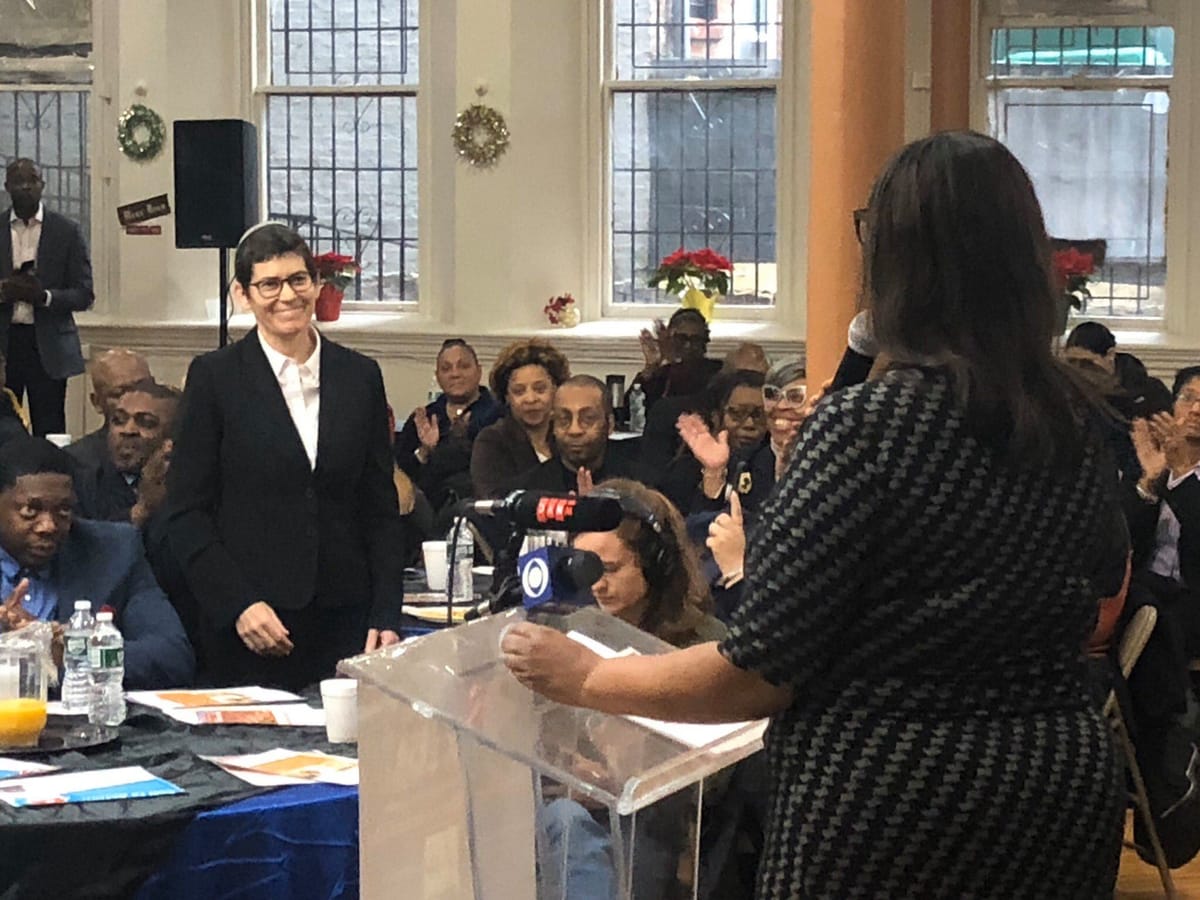Brooklyn’s Religious Leaders Lead the Fight Against Anti-Semitism


BEDFORD-STUYVESANT – Brooklyn has become one of the epicenters of anti-Semitic hate crimes, which have skyrocketed across New York City. During the 2019 Jewish holiday of Hanukkah, there were at least four anti-Semitic attacks over a 30-hour period that included three in Brooklyn. A unified response across Brooklyn’s various communities is urgently needed, and religious leaders are key to that approach.
“It’s our job as clergy to educate everybody that anti-Semitism and racism are unacceptable,” the Rev. Dr. Robert Waterman of the Antioch Baptist Church in Bed-Stuy told Bklyner, adding that hate crimes would diminish if groups learned about each other’s culture and experiences.
Pastor Waterman is president of the African American Clergy and Elected Officials Organization (AACEO), which holds monthly meetings to discuss ways to improve conditions, such as education and health care, in the Black community.
The pastor invited Rabbi Rachel Timoner of Congregation Beth Elohim, in Park Slope, to join AACEO on January 3 for a unity prayer at the organization’s monthly meeting.
Rabbi Timoner said she welcomed the invitation. The rabbi and the pastor led the assembled Black ministers and elected officials in prayer about the hate crimes.
“People are shaken,” Rabbi Timoner told Bklyner, about the mood among members of her congregation. “There’s a general feeling of fear about what’s happening across our country right now, and why so many people are turning toward hate and violence against Jews.”
Pastor Waterman empathized: “We [African Americans] look at it from a racism perspective. We know what it feels like to be rejected and looked down upon. From that perspective, it’s easy to reach out to our Jewish brothers and sisters to tell them we understand.”
Religious leaders are among the community stakeholders who form the centerpiece of Mayor Bill de Blasio’s efforts to combat hate and anti-Semitism in the City. The mayor announced the launch of Neighborhood Safety Coalitions in Brooklyn as one of several measures to combat hate crimes.
“You’ll see clergy and community leaders and activists of different communities out in the streets, working together, talking to young people, engaging, being present where there’s a problem,” de Blasio stated, adding that “these community efforts, they will be more than just a standard community patrol.”
Bklyner contacted the NYPD for details about the Neighborhood Safety Coalitions. However, a public information spokesperson said the department was “unable to accommodate” an interview at this time.
According to the mayor’s announcement, the coalitions will launch in Williamsburg, Crown Heights, and Borough Park, and will be overseen by the Office for the Prevention of Hate Crimes. These neighborhoods have experienced a disproportionate amount of anti-Semitic hate crimes.
“These individual coalitions will identify and address issues that drive hate-based crimes, bringing together stakeholders from across their communities. They will meet community members where they are — in schools, on street corners, in religious institutions — to be a regular presence to deter acts of hate,” the mayor stated.
There was a consensus at the prayer breakfast that Black leaders have a role to play. Rabbi Timoner said it was “empowering and encouraging” to hear African American clergy and elected officials calling it “a priority” for them to get involved.
“So many speakers at the breakfast spoke about anti-Semitism and spoke about the need in the African American community for leaders to speak openly and directly against anti-Semitism, to make it clear to young people in particular that anti-Semitism is not tolerated and not acceptable, and that type of ignorance and bigotry has no place in the Black community,” she said.
Rabbi Menachem Heller of the East Williamsburg Chabad agreed with these sentiments in an earlier interview with Bklyner, “we should not be encouraging or letting people promote [anti-semitism] in the Black community.”
The Muslim community has also been supportive.
“Some of the first messages I got were from an imam who I’m friends with,” Rabbi Timoner said, recalling that Muslim leaders joined with Jews in solidarity against the wave of hate crimes during a gathering at Grand Army Plaza on the eighth night of Hanukkah.
AACEO plans to invite more Jewish clergy to its prayer breakfasts. But there’s more work to do beyond prayer, the pastor said.
“The Bible says it’s not enough to pray,” Pastor Waterman highlighted. “Prayer is good for the foundation, but after prayer, we need to come up with solutions that will benefit communities as a whole.”




